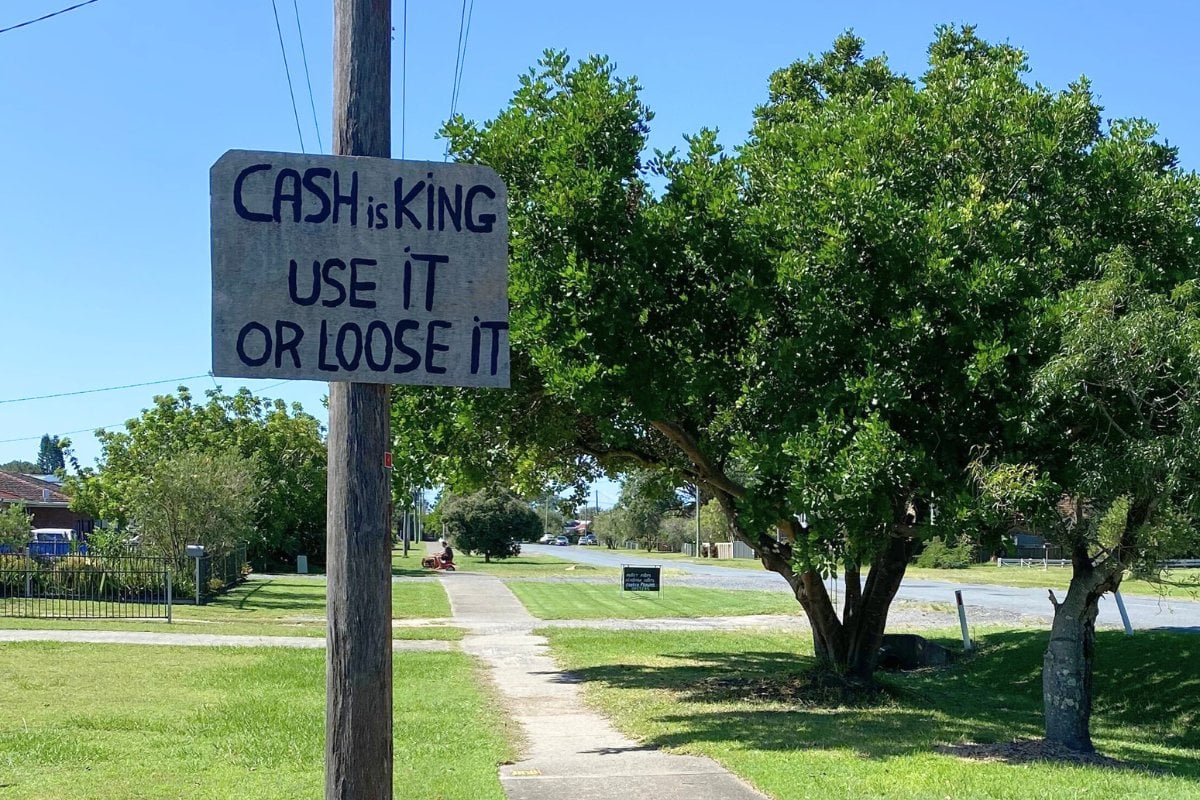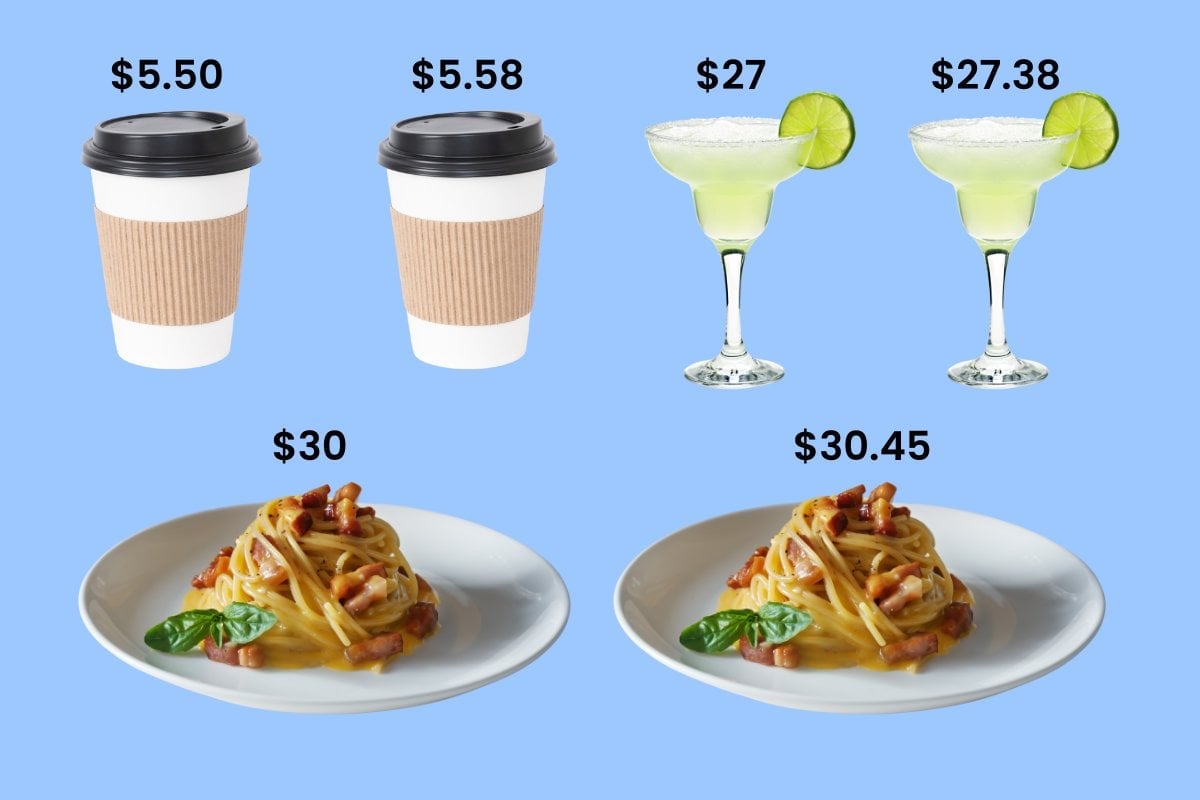
"Cash is king" according to many frustrated locals in regional and rural areas right now. And fair enough.
Earlier this month, Draw Out Some Cash Day was celebrated by many across the country. It actually started as an online petition, protesting the declining use of cash in everyday transactions. The campaign called for Aussies to visit their local ATM or bank branch and withdraw some money.
It resulted in countless towns being filled with signs that read "cash is king", highlighting just how important physical cash is for not only for the regions, but also many older Aussies.
"It's a big issue, not only for our community, but many others," says Margaret who lives in a regional town. "People are saying that when you pay in cash, you get what you pay for. No extra deductions and charges. But using credit cards is costing you money."
These concerns aren't isolated. When is the last time you paid for something with cold, hard cash?
Now think about the last time you paid for your goodies with a credit card/debit card. There's a very high chance you had a fork out for a surcharge on top of the cost of your item(s) too.
Watch: 4 money hacks that don't cut out your daily cup of coffee. Post continues below.


Top Comments
The withdraw cash day "protest" didn't really have a lot of impact on anything, other than a few people patting themselves on the back for getting cash out and posting pictures under their own names holding wads of cash. I also think that businesses that go "cash only" are a bit dodgy and might be trying to avoid paying taxes.
I, for one, will not be going back to withdrawing cash to pay for things, I have Apple Pay on my phone and watch, which have been so convenient, especially when I lost my card, as I was still able to use EFTPOS through my Apple wallet, as my bank account was still linked.
I lost my wallet a little while back, if I'd had cash in there, that would have been gone. I cancelled my card and could keep using EFTPOS with my phone wallet, so that's pretty much sold me on electronic payments forever. Cash has it's place still, but this whole cash movement is pretty ridiculous.